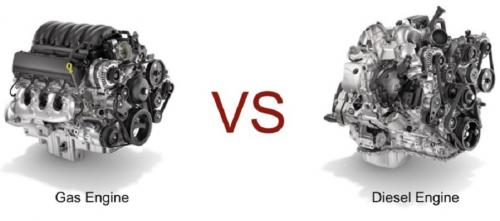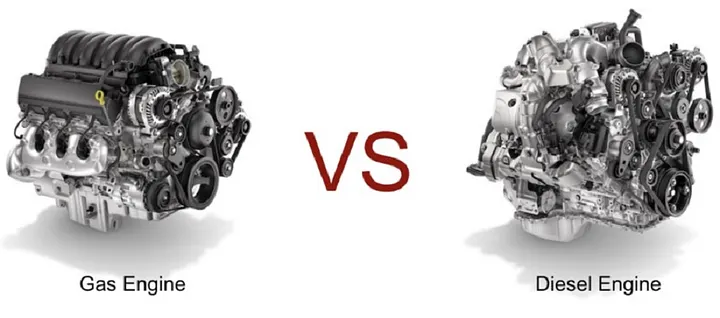Are Diesel Engine Parts More Expensive?

Diesel engines have a reputation for durability and reliability. But when it's time for repairs, many drivers find that diesel parts cost significantly more than gasoline engine components. So why exactly are diesel parts more expensive, and how big is the price difference?
As a reliable diesel engine parts supplier, I've worked on hundreds of diesel and gasoline vehicles over my career. In this complete guide, I'll share insider knowledge on the real costs of maintaining and repairing diesel vs gas engines. You'll learn:
- The key differences in how diesel and gasoline engines work
- Why diesel components tend to be more robust and expensive
- Specific parts that cost more for diesel vehicles
- Strategies to reduce maintenance costs for diesel owners
Whether you currently drive a diesel car or truck, or are considering one for your next vehicle purchase, you'll find this guide packed with money-saving tips and diesel cost comparisons. Let's get started!

Are Diesel Engine Parts More Expensive?
Absolutely, yes! Maintaining and fixing even basic issues with a diesel engine costs easily double to triple—and sometimes over ten times higher—than similar gasoline engine repairs.
Better fuel efficiency, added capability for hauling and towing, and enhanced longevity help offset diesels' painful parts pricing. But all that takes discipline, research, and proactive maintenance from the owner.
How Diesels Differ From Gas Engines
To understand the higher price tag of diesel parts, it helps to first look at what makes a diesel engine unique. While both diesel and gasoline units are internal combustion engines, several major differences affect their operation and component costs:
Combustion Process
The core distinction lies in how diesel and gasoline engines ignite their fuel. Gasoline engines use spark plugs to ignite a mixture of fuel and air. Diesel engines rely on compression to heat air in the cylinder until the diesel fuel ignites spontaneously.
Construction
Thanks to higher compression ratios and combustion pressures, diesel components must be built more robustly from stronger, heavier materials. This added durability contributes to the higher diesel parts pricing.
Fuel Injection
Modern gas engines employ sophisticated electronic fuel injection systems. Diesels still predominantly use direct mechanical injection, which operates at ultra-high fuel pressures requiring specialized pumps and injectors.
Emissions Equipment
To meet emissions standards, diesel engines require additional components like diesel particulate filters, EGR valves, DEF systems, and complex turbocharger setups. These extra parts increase purchase and maintenance costs.
Now that you understand some of diesel engines' unique attributes, let's look at why those differences result in pricier replacement parts.
Why Diesel Parts Cost More
Multiple factors cause most diesel engine components to cost significantly more than gasoline parts. These include:
Research and Development
With far fewer diesel than gas vehicles on the roads, auto manufacturers have lower production volumes to recoup R&D expenses for diesel powerplants. This gets built into higher diesel parts pricing.
Materials and Build Quality
As mentioned earlier, the rugged construction of diesel components requires more robust materials and manufacturing processes. Thicker engine blocks, steel fuel lines, and forged internals drive parts prices upward.
Supply and Demand
The pool of mechanics skilled in diesel repair is smaller than ones specialized in gas vehicles. With higher labor rates and lower demand, economies of scale don't bring down diesel parts costs like for mass-market gasoline vehicles.
Additional Sensors and Electronics
Modern diesel emissions equipment depends heavily on electronics to function properly. All those extra sensors, modules, and controllers contribute to loftier parts expenditures when they fail.
Inventory Expenses
With less overall demand, dealers stock fewer diesel parts on their shelves. The logistics of special ordering diesel components gets built into higher list prices.
Now let's look at some specific examples of why diesel owners pay more in common repairs and maintenance.
Diesel vs Gas Parts Pricing Examples
While diesel engines themselves often cost $5,000-$10,000 more than their gasoline counterparts upfront, the premium paid at purchase time is just the beginning. Here are some of the most notable diesel vs gas parts pricing differences:
Glow Plugs
These engine pre-heaters allow diesels to start easily in cold weather. A typical gas engine doesn't need them. Glow plug operating life is also relatively short, requiring frequent replacement at $75-$150 per plug.
Fuel Injectors
Built to withstand intense heat and pressures, diesel injectors cost over $400 each from the dealer. Gas injectors run closer to $100. Labor rates for injector service are also higher for diesels given the expertise required.
Alternators and Starters
Rated for the high electrical loads required by diesel emission systems, heavy-duty alternators often exceed $500. Diesel starters must also crank more compression, with prices ranging from $300-$600. Both are easily double what gas engine starters and alternators cost to purchase.
EGR Valves
Required diesel emissions gear, EGR valves run $350 on average. Most gas engines go without, except some hybrids. Plan on replacing them every 80-100k miles.
Turbochargers
Adding complexity and two more points of failure, diesel turbo kits with variable geometry technology frequently top over two grand. Factory gas engine turbochargers typically max out under $1,000.
Diesel Particulate Filters
When clogged DPF filters need replacement on late-model diesels, owners often face $2,000 repair bills. Gas trucks require nothing similar, with catalytic converters running just a few hundred bucks at most.
Clearly, common diesel parts often run two, three, even five times what gasoline components cost. And those expenses stack up over years of ownership. Next, let's explore ways to defray runaway diesel maintenance and repair costs.
Strategies To Reduce Diesel Upkeep Costs
Despite their generally lower operating costs thanks to better fuel efficiency, maintaining diesel vehicles can hit the wallet hard once major repairs come due. Here are tips to minimize expenses and keep your oil-burning engine on the road affordably:
Buy Used Parts Online
Instead of shelling out big bucks for new parts from the dealer, quality used diesel components can provide massive savings. Check reputable suppliers like Diesel Parts Direct and Diesel Freaks that stock tested items ready to ship.
Learn DIY Repairs
With many garages reluctant to work on diesel trucks given their complexity, learning to tackle basic repairs yourself pays dividends. Hours of labor for simple jobs like glow plug, injector, and turbo replacements really add up.
Drive Gently To Avoid Premature Failures
Pounding on your diesel powerplant with aggressive throttle application and speeding up downhill leads to cracked pistons, burnt valves, and blown head gaskets. Go easy on the loud pedal and let engine braking slow you on descents.
Follow Stringent Maintenance Schedules
Letting oil changes, fuel filters, coolant flushes, and other basic service slide leads to thousands in repairs down the line. Stick religiously to factory maintenance intervals for best longevity.
Delete Complex Emission Controls
EGR valves, turbocharged induction, diesel particulate filters, and DEF injection all take their toll on reliability. Removing these elaborate emissions controls surgically enhances dependability and saves hugely on repairs. But stay within legal limits for modifications where you register the vehicle.
Carry Spare Parts Like Filters and Belts
Since many diesel components take days or even weeks to receive, keeping common wear items and extra belts with you enables roadside repairs that prevent tow truck calls and costly shop visits.
The Bottom Line
Hopefully this diesel cost reality check provided helpful info if you currently operate a diesel vehicle. And I trust the guidance proves useful when weighing the pros and cons of diesel ownership before your next truck or automobile purchase.
Please reach out with any other diesel repair questions! Happy motoring...
Post Your Ad Here
Comments